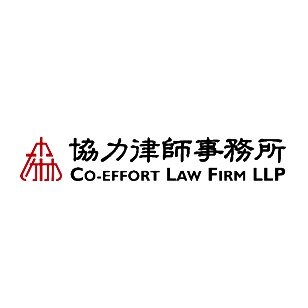Best Licensing Lawyers in Beijing
Share your needs with us, get contacted by law firms.
Free. Takes 2 min.
List of the best lawyers in Beijing, China
About Licensing Law in Beijing, China
Licensing law in Beijing, China, involves regulations and legal requirements surrounding the authorization to use, distribute, or manufacture certain products or services. Licensing can cover a broad range of areas such as intellectual property, business operations, and industry-specific requirements. In Beijing, particular emphasis is placed on intellectual property licenses due to its status as a hub for technology and innovation. Businesses and individuals in Beijing must navigate a complex combination of national and local regulations to ensure compliance with licensing requirements.
Why You May Need a Lawyer
There are several scenarios where you might require legal assistance regarding licensing in Beijing:
- Establishing a new business that requires specific permits or licenses.
- Negotiating licensing agreements concerning intellectual property.
- Ensuring compliance with industry-specific licensing regulations.
- Resolving disputes or infringements related to licensing terms.
- Navigating changes to regulatory or compliance requirements.
A lawyer familiar with Beijing's legal standards can help streamline these processes and provide comprehensive guidance to avoid potential legal pitfalls.
Local Laws Overview
Understanding local laws is crucial for licensing in Beijing. Key aspects include:
- Business Licensing: Enterprises operating in Beijing are required to obtain specific licenses according to their industry. This includes retail licenses, service industry permits, and others.
- Intellectual Property: Beijing enforces stringent intellectual property laws. It's crucial for businesses to secure licenses for patents, trademarks, and copyrights to protect their assets.
- Regulatory Compliance: Various industries, especially those involving food, healthcare, and technology, have additional regulations. Businesses need to ensure they meet all local, provincial, and national regulatory requirements.
- Operational Permits: Beyond establishment, businesses may need permits for ongoing operations, such as environmental permits or construction licenses.
Frequently Asked Questions
What types of licenses might I need to start a business in Beijing?
The types of licenses required can vary by industry, but typically include a business license, sector-specific permits, and environmental compliance certifications.
How can I protect my intellectual property through licensing in Beijing?
To protect your intellectual property, you can apply for patents, trademarks, or copyrights through the China National Intellectual Property Administration and enter into formal licensing agreements with users of your IP.
Are there specific licenses required for e-commerce businesses?
Yes, e-commerce businesses need an Internet Content Provider (ICP) license and must comply with cybersecurity regulations.
How long does it typically take to obtain a business license in Beijing?
The timeline can vary based on your industry and preparedness. Generally, it takes several weeks to a few months, assuming all paperwork is in order and submitted correctly.
What if I fail to comply with licensing regulations?
Non-compliance can result in fines, revocation of licenses, or even legal action against the business. It's critical to ensure all regulatory requirements are met.
Can foreign businesses obtain licenses in Beijing?
Yes, foreign businesses can obtain licenses, although there are additional layers of compliance specific to foreign investment and operation.
How do I resolve a dispute over a licensing agreement?
Disputes can be resolved through negotiation, mediation, or arbitration. Legal advice is recommended to guide you through these processes effectively.
Do licensing laws in Beijing differ from other cities in China?
While there is a general national framework, local regulations can differ. It's important to understand Beijing's specific requirements.
Can licenses be transferred or sold to another party?
Some licenses can be transferred or assigned with appropriate legal arrangements, but this depends on the type of license and local regulations.
What role does the government play in licensing?
The government issues licenses, ensures compliance, and enforces regulations. Various governmental bodies oversee different aspects of licensing, particularly in regulated industries.
Additional Resources
Here are some resources that might be helpful:
- Beijing Municipal Bureau of Commerce: Offers guidance on business-related licenses.
- China National Intellectual Property Administration: Provides resources and support for intellectual property licensing.
- China Council for the Promotion of International Trade (CCPIT): Assists with trade-related licensing.
- Local Chambers of Commerce: Can provide industry-specific advice and support.
Next Steps
If you require legal assistance with licensing in Beijing, consider the following steps:
- Assess your specific needs: Understand which licenses or legal services you require.
- Consult with a lawyer: Look for legal professionals with experience in licensing law in Beijing.
- Prepare your documentation: Ensure you have all necessary documents ready for submission or for your consultation.
- Stay informed: Keep up-to-date with local and national legal developments regarding licensing.
Engaging a knowledgeable lawyer can help navigate licensing complexities effectively, ensuring compliance and fostering business success in Beijing.
Lawzana helps you find the best lawyers and law firms in Beijing through a curated and pre-screened list of qualified legal professionals. Our platform offers rankings and detailed profiles of attorneys and law firms, allowing you to compare based on practice areas, including Licensing, experience, and client feedback.
Each profile includes a description of the firm's areas of practice, client reviews, team members and partners, year of establishment, spoken languages, office locations, contact information, social media presence, and any published articles or resources. Most firms on our platform speak English and are experienced in both local and international legal matters.
Get a quote from top-rated law firms in Beijing, China — quickly, securely, and without unnecessary hassle.
Disclaimer:
The information provided on this page is for general informational purposes only and does not constitute legal advice. While we strive to ensure the accuracy and relevance of the content, legal information may change over time, and interpretations of the law can vary. You should always consult with a qualified legal professional for advice specific to your situation.
We disclaim all liability for actions taken or not taken based on the content of this page. If you believe any information is incorrect or outdated, please contact us, and we will review and update it where appropriate.
















